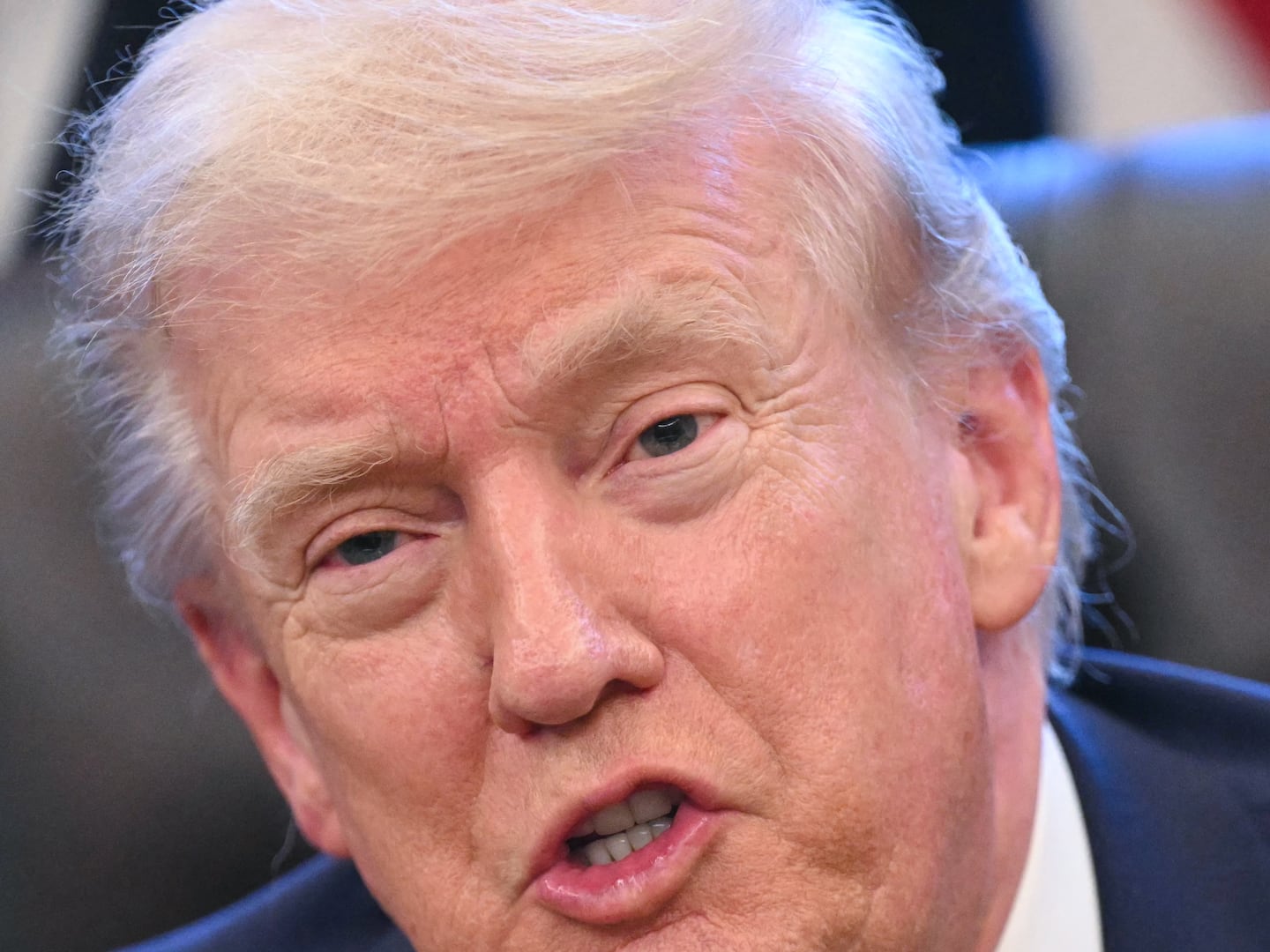
It may seem almost unfair to point out that the Obama administration not only has to help the Iraqis form a new government before impatience leads to violence, but also has to ensure that government can actually govern. Unfortunately, it’s also critical.
Iraq remains a work in progress at best. Its citizenry is deeply unhappy about the myriad problems with water, electricity, sanitation, unemployment, communications, transportation, agriculture, education, housing, and virtually everything else. Security has been better for several years now, and yet it has not led to the better life, or even the bearable life, that so many Iraqis had hoped for. If the new government is not able at least to start delivering on those promises, Iraqis will become badly disillusioned, leaving them vulnerable to recruitment by militias promising to solve their problems in a way the government can’t (the Hezbollah model) and setting the scene for a military coup or even a return to civil war.
Thinking small and thinking short-term would probably be the worst thing we could do.
Thus, the next Iraqi government must be able to take actions and improve the lives of its constituency in ways that its predecessors so far have failed to do. It must be able to rule, not just reign. And that is critical not just for Iraqi expectations, but for America’s vital interests—and especially for the Obama administration, which must ensure that Iraq has achieved a sustainable stability before American troops are reduced further or removed altogether after December 2011.
In recent weeks, the administration has demonstrated an admirable recognition that the Iraqis probably cannot solve their problems and form a new government on their own. American officials in Washington and Baghdad have begun to push harder, working to narrow differences and create areas of convergence among the rival factions. They have also begun to think creatively about how Iraq might change its political structure, at least within its dysfunctional executive branch, to allow for more positions of power that would ease the deals needed to form a new government coalition. The U.S. is dispatching Assistant Secretary of State Jeffrey Feltman for several weeks to bolster the embassy’s efforts at deal-making. The new U.S. ambassador to Iraq, Jim Jeffrey, will also arrive this month, and there are rumors of other high-ranking officials being dispatched to Baghdad this month.
All of that is to the good. However, if the United States is going to maximize its chances of getting not just a government, but a government that can govern, it is going to have to work even harder to ensure that the process of government formation results in a government that can deliver good government and avoid the paralysis that crippled past Iraqi governments.
Don’t Create New Bureaucratic Entities. Anyone who has ever served in a government will tell you that creating new bureaucracies rarely makes a government more efficient or effective, and typically makes it less so. The administration is right that Iraq’s executive branch is part of the problem. It needs to be restructured and its powers reapportioned to balance the position of prime minister. Doing so also could end the insurmountable competition over who gets to be prime minister and make other positions more desirable than they are now—both of which should ease government formation.
However, solving these problems by adding new bureaucratic entities, as the U.S. and Iraqis are now considering, is neither necessary nor desirable. First, most of the new structures being contemplated would likely be subverted by the prime minister’s office over time, as we have seen repeatedly in the past. Second, the last thing the Iraqis need is another bureaucratic actor that must be consulted and appeased before the government can take action.
A better approach would be to shift the position of commander in chief of the Iraqi armed forces and the authority for appointing the ministers of defense and intelligence, plus the heads of the various Iraqi intelligence services, from the prime minister to the president. This would take Iraq’s entire security portfolio out of the hands of the prime minister and give it to the president, leaving the prime minister with responsibility for the economy, energy, foreign policy, and domestic politics. Doing so would finally create a real balance of power that would make it impossible for the prime minister to dominate the government to the extent he has in the past. Second, it would reapportion the workload within the existing bureaucracy, lightening the load on the prime minister’s office and giving more to the underutilized president’s office. Third, it would take Iraq’s security forces away from the inherently political position of prime minister and place them instead under the president, who was always meant to be a figure “above politics.” This would help reinforce the professionalism and limit the politicization of Iraq’s armed forces.
Be Wary of “Inclusiveness.” The more Iraqi groups and parties we try to bring into the government, the easier it is likely to be to form a government, and the more impossible it will be for that government to govern. The more viewpoints included in the government, the more difficult it will be for the government to reach decisions. Consequently, we need to be careful about bringing so many groups into the government for the sake of getting a government that will make every Iraqi happy that we get a government unable to take action, which will make no one happy.
Some inclusiveness is necessary: The Kurds can make an awful lot of trouble if they are not part of the government, and a key improvement in Iraq over the past three to four years has been the willingness of the Sunni community to embrace Iraq’s political process and end its support for violent opposition. Not every Sunni party need be rewarded, nor do the Kurds deserve more political power than their demographic and political power warrants, but both communities need to believe that they have not been excluded from power. As for the various mostly Shiite parties, at least some need to be part of the government, but not all do. And given the sharp divisions among them—and even within the two major Shiite coalitions, Prime Minister Maliki’s State of Law and the ISCI-Sadrist Iraqi National Alliance—there is no need to have them all. Rather than stressing inclusiveness, the U.S. should stress that the government should reflect the results of the election. That would mean starting with a majoritarian government composed of the heavily Sunni Iraqiyya and the largely Shiite State of Law, and then bringing the Kurdish parties in as the third leg of the stool.
Fix the Constitution. Iraq’s constitution isn’t necessarily the worst imaginable, but it has a lot of big problems. As noted above, some of those problems relate to the structure and authorities of the Iraqi government, some are about the nature of the relationship between the government and the wider society, and some relate to elections and government formation itself. In fact, Iraq is in its current mess because the constitution is a disaster on questions of how, when, and who can form a government after an election. These flaws in the constitution are potentially ruinous for Iraq. They create and perpetuate ferocious divisions among different groups within Iraq, and so they absolutely must be addressed if Iraq is going to emerge as a stable nation.
There is arguably no worse time to revise Iraq’s constitution than in the midst of a huge crisis over government formation, but there also will never be a better time—and there may never be another time. It will be hard enough just to form a government given all the problems created by the constitution, and the last thing that the Obama administration wants is to tackle the constitution itself at the same time. But thinking small and thinking short-term would probably be the worst thing we could do. The crisis created by the deadlock over government formation provides an opportunity to fix these underlying structural problems. Right now, Iraqi politics remains fluid, but in a year or two it will likely have hardened in ways that will make it much harder to re-open constitutional questions. And the constitution itself can create the vehicle: To elect a new president, which is necessary to form a new government, requires a super-majority in the Iraqi parliament, which also can lay the political foundation for amendments to the constitution, especially if the new government includes Iraqiyya, State of Law, and the two main Kurdish parties.
It is not going to be easy for the Obama administration to help the Iraqis overcome their differences to form a legitimate new government. It will be even harder if they also have to do what will be necessary to ensure that the new government can actually govern once it has taken office, but it is also absolutely essential. If the United States is going to leave Iraq responsibly and without pushing it back into civil war as we make our exit, there is no getting around going the extra mile.
Kenneth M. Pollack is the director of the Saban Center for Middle East Policy at the Brookings Institution.






